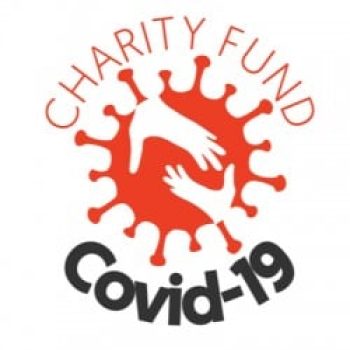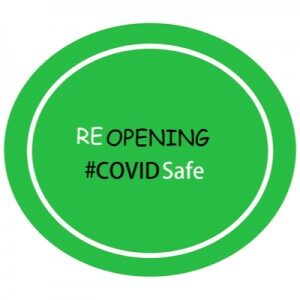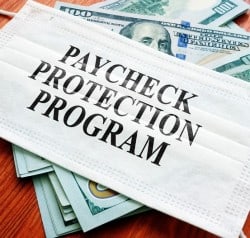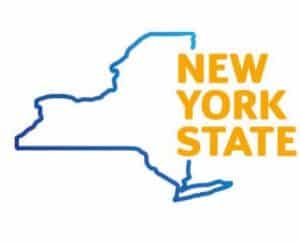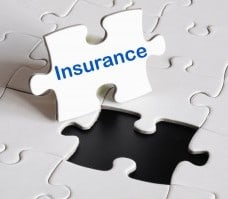The widescale impact of the COVID-19 pandemic has left many low-income individuals and families throughout the country and world with an unexpected loss of critical income, while still faced with basic monthly living expenses, including rent, utilities, food, and medical costs. Many charitable organizations, including those that do not typically provide emergency hardship assistance to individuals and families in need, are looking for ways to assist individuals and families during this challenging time. This FAQ provides answers to the key questions that 501(c)(3) tax-exempt organizations may have when considering the establishment of a financial hardship assistance program.
- Can my 501(c)(3) charitable organization conduct an emergency hardship assistance program, even if such assistance was not part of the stated purposes of my organization when it applied for tax-exempt status with the IRS?
With respect to federal tax law considerations, 501(c)(3) organizations do not have to obtain pre-approval from the IRS to provide emergency hardship or disaster relief assistance, including fundraising to make grants for such purpose. However, if a public charity carries on emergency hardship and disaster relief assistance as one of its three largest programs, it will need to describe those services in the organization’s annual Form 990 filed with the IRS. The organization may also need to report grants and other assistance given to organizations or individuals within and outside the U.S., and noncash contributions received, such as donations of food or other supplies to distribute to families in need.
With respect to state law considerations, organizations should review their statement of legal purposes, as documented in their certificate of incorporation filed with the state in which they are incorporated. Some organizations draft their statement of purpose very broadly to include any charitable purposes and activities that are permissible under section 501(c)(3) of the Internal Revenue Code (which would include operation of a disaster or emergency hardship assistance program). However, some organizations draft their statement of purposes narrowly. If the organization’s legal purposes are drafted narrowly, and would not include the operation of a disaster or emergency hardship assistance program, the organization may need to amend the purposes in its certificate of incorporation to conduct the program. In addition, organizations should use donations that were previously received for a different charitable purpose for those specified purposes only, and only apply new donations solicited for purposes that include disaster or emergency hardship assistance for that purpose.
- Can my organization solicit donations to support specific individuals or families in need?
An emergency hardship or disaster relief assistance program cannot be designed to serve any particular individuals, but rather, must be designed to assist a “charitable class.” An assistance program serves a “charitable class” if the group of eligible beneficiaries is either: (1) large enough that the potential beneficiaries cannot be individually identified, or (2) sufficiently indefinite such that the entire community benefits from the charitable assistance.
If the group of eligible beneficiaries is limited to a smaller group, an assistance program will still be considered to benefit a charitable class if the group of beneficiaries is indefinite. For the group of beneficiaries to be indefinite, the program should be open-ended such that the total number of potential members making up the charitable class cannot be counted or identified. For example, if a financial assistance program is designed to benefit families of alumni from a particular college in connection with a current disaster or emergency as well as future disasters and emergencies, the program would be viewed as serving an indefinite charitable class.
- What kind of documentation must my organization maintain as part of an emergency assistance program?
In general, organizations must maintain adequate records to show that the organization’s assistance, whether in the form of tangible goods, services, or cash assistance, furthered charitable purposes, and that the recipients are needy or distressed.
Organizations providing emergency short-term assistance (e.g., hot food, clothing) to individuals in need of immediate assistance with basic necessities are not required to undertake a needs assessment. The organization should document the criteria for disbursing assistance (e.g., sudden loss of home and/or belongings), date/place of distribution, estimated number of individuals assisted, the charitable purpose intended to be accomplished, and the cost of the aid.
For longer-term assistance, organizations must maintain more detailed records to demonstrate that the organization has conducted an appropriate needs assessment which confirms that the individuals or families are financially in need. Being in financial need does not require individuals to be totally destitute; it is sufficient if they simply lack the resources to obtain basic necessities. An organization’s decision to provide financial assistance should be based on a reasonable determination that the individual’s financial resources, such as available cash, expenses, other financial obligations, assets that can be disposed of without causing further personal hardship, and anticipated cash flow (income, insurance proceeds, etc.), will be insufficient to provide for timely coverage of his/her existing obligations and basic needs. Longer term financial assistance may include assistance with rent, mortgage payments or car loans to prevent loss of a primary home, utilities payments, and childcare and tuition costs for children.
Documentation relating to long-term assistance should generally include:
- a complete description of the assistance provided,
- costs associated with providing the assistance,
- the purpose for which the aid was given,
- the charity’s objective criteria for disbursing assistance under each program,
- how the recipients were selected,
- the name, address, and amount distributed to each recipient,
- any relationship between a recipient and officers, directors, or key employees of, orsubstantial contributors to, the charitable organization, and,
- the composition of the selection committee approving the assistance.
- How do we determine the appropriate amount of assistance to provide to families as part of our financial assistance program?
An organization’s decision about how much to distribute to individuals and families in need must be based on an objective evaluation of the individual’s needs at the time the grant is made. The amount needed to relieve financial hardship and distress should be based on all the facts and circumstances of the individual’s situation and the charity’s resources. Making an individual whole on account of a disaster or emergency hardship does not, necessarily, further charitable purposes. IRS guidance cautions that an outright transfer of funds based solely on an individual’s involvement in a disaster or without regard to meeting the individual’s particular distress or financial needs would result in private benefit, which is impermissible. Similarly, grants to replace lost income rather than to meet basic living needs would generally be viewed as serving personal and private interests, which is also impermissible. Adequate documentation should be maintained to justify that the individual grants are appropriate in amount and further charitable purposes.
- Will recipients of financial hardship funds need to pay taxes on the amounts received from a 501(c)(3) tax-exempt organization?
Financial assistance that a 501(c)(3) tax-exempt organization gives to individuals or families in need for emergency hardship situations are excludible from the recipient’s gross income as a gift under Section 102 of the Internal Revenue Code.
- Can a public charity, private foundation, or donor-advised fund established by a company provide disaster or emergency hardship assistance to the company’s employees and their families as a result of COVID-19?
Companies can provide disaster or emergency hardship assistance to employees and their families in connection with the COVID-19 outbreak through these charitable vehicles, but as further discussed below, need to structure their programs in ways that do not provide impermissible private benefit to the employer.
Employer-sponsored public charities, which typically receive broad financial report from the general public and are subject to greater transparency requirements, may provide disaster or emergency hardship assistance to their employees and their family members, as long as a related employee does not exercise excessive control over the organization. Typically, a significant portion of the board of such employer-sponsored public charities are individuals who are not in a position to exercise substantial influence over the affairs of the employer.
Employer-sponsored donor-advised-funds (DAFs) and private foundations are only allowed to provide assistance to employees and their family members if they’ve been affected by a “qualified disaster.” COVID-19 was officially declared a “qualified disaster” on March 13, 2020, so employer-sponsored DAFs and private foundations can provide payments to employees and their family members as long as there are safeguards in place to make sure the payments are for charitable purposes.
Employer-sponsored assistance programs should follow the program requirements discussed above (e.g., support of a charitable class, selection of recipients based on an objective determination of need, and adequate documentation of recipients’ need for assistance). In addition, the selection of beneficiaries must be made using either an independent selection committee or adequate substitute procedures to ensure that any benefit to the employer is incidental and tenuous. The selection committee is considered “independent” if a majority of the members of the committee are not in a position to exercise substantial influence over the affairs of the employer. Pursuant to statutory restrictions applicable to donor-advised funds, no payment may be made from the DAF to or for the benefit of any director, officer, or trustee of the sponsoring public charity, or members of the fund’s selection committee.
Additional information about providing disaster relief assistance through charitable organizations, including employer-sponsored assistance programs, is available in IRS Publication 3833.
The information provided does not constitute legal advice, and is not intended to substitute for legal counsel.
- Karen l. Wu
- Karen l. Wu
- Karen l. Wu
- Karen l. Wu
- Karen l. Wu
- Karen l. Wu


